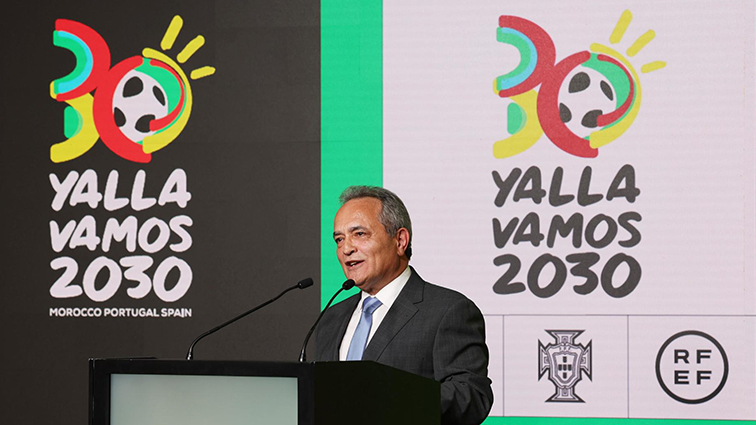The 2026 FIFA World Cup will expand to 48 teams from six confederations. While the increase in teams opens the door for more nations, it also makes the competitiveness of World Cup qualifying seem somewhat irrelevant.
Let’s get this out of the way: World Cup qualifying is still competitive. In a confederation like CONMEBOL, the qualifying matches are fierce, driven in part by national pride. However, the question arises: what happens to that competition when players and coaches realize that the margin for error has become significantly larger compared to previous years?
Take the qualifying match between Uruguay and Argentina, played at the Centenario Stadium. The game was intense, with the defending world champions securing a 1-0 win off a brilliant goal from Thiago Almada. Despite the tough loss, Uruguay remained on track for the World Cup. In fact, just days later, they drew against Bolivia and finished the qualifying window in third place.
In a qualification process where six out of 10 teams advance directly, third place is a comfortable position. But before you scour the internet in search of where to find the best online sportsbooks to bet on Uruguay earning a spot at the 2026 World Cup, let’s get some context of where the team currently stands.
Despite sitting in third, Uruguay have struggled to create and score goals, and find themselves in a tight race for spots three through six. In a similar situation four years ago, Uruguay would have panicked about their World Cup spot, as a sixth-place finish would have them on the outside looking in.
However, with the expanded field, there is plenty of wiggle room even in sixth, as dropping to seventh would still qualify for an inter-continental playoff spot. And with the current seventh-place team Venezuela trailing sixth-placed Colombia by five points, mediocrity is enough to secure a place in the tournament.
Colombia, for example, have won only one of their last five games, losing three in that span. Yet, they remain firmly in a World Cup spot.
Over in UEFA, the qualification process remains largely unchanged despite an increase in the number of teams from 14 to 16. It’s still competitive, but the major powers should find it easier to secure a spot in the World Cup.
In CONCACAF, the question of which nations will qualify becomes harder to answer, especially with the United States, Canada, and Mexico already guaranteed a spot. Africa still maintains a competitive qualification process, but with the number of qualifying teams nearly doubling — from five in 2022 to nine in 2026 — the field is much more spread out. So far, Nigeria is the only significant nation from the region that may miss out on the World Cup.
What does all of this mean for the future of international soccer? With more competitions than ever saturating the calendar and qualification processes that are becoming increasingly easier, the appeal of international soccer is beginning to fade.
A Lack of Interest
Before the national anthems, Christian Pulisic looked around the stadium, saw the low attendance and smiled awkwardly. “😬” pic.twitter.com/lHwz1PsGoX
— Felipe Cárdenas (@FelipeCar) March 20, 2025
The scarcity of international soccer is what made it so special. A World Cup every four years, mixed with quadrennial continental cups was just enough to keep us satiated.
And while those intervals still stand today (despite FIFA’s efforts), additional tournaments and expanded fields have watered down the international game, which oftentimes features a lack of intensity on the pitch and indifference in the stands.
The current World Cup qualification process is riding the wave of the past, trying to re-capture the magic of bygone years. However, as players, coaches, and pundits come to realize that international games are becoming easier, the allure of these matches is rapidly diminishing.
Let’s go back to the Uruguay-Argentina game. The ambiance of the stadium felt different. Tickets were priced in a way that made it difficult for average soccer fans to attend, and the lower bowl of one of the world’s most iconic stadiums was filled with a crowd that seemed more suited for a leisurely drink than an intense soccer rivalry. The end result was a subdued crowd that lacked the usual passion that Uruguay is known for.
The pressure on players felt lighter. While Uruguay still played with their usual intensity, the long-term question is: how much longer will international players continue to play with that passion when they can coast by with just OK performances? Will they continue to risk injury for games that are becoming increasingly inconsequential? Ask Alphonso Davies, who tore his ACL in Canada’s recent CONCACAF Nations League window.
As we approach the 2030 World Cup, which will be hosted by six nations, the qualification process remains the same. What will the state of national teams be by then, especially when confederations are turning inward? UEFA has its Nations League, CONCACAF rarely plays outside its region, and CONMEBOL is stuck in an endless qualification cycle — one that today seems far too long, especially when up to 70% of teams in the region will qualify.
This could lead to a mass exodus of top managers, who may prefer to stay in club soccer, where the action is. The hardest jobs in the world of soccer aren’t coaching Brazil, Argentina, or Mexico; they’re coaching a top UEFA Champions League club.
National teams were once about the best players and the best coaches. However, in the case of many teams, the best manager is not at the helm of the national team. Brazil, a five-time World Cup champion, is a prime example of this issue.
Dorival Junior, the current manager, has a lengthy coaching history, but isn’t quite an A-list name. The last Brazil manager with experience at a top European club or nation was Luis Felipe Scolari, who had several stints at the helm of the nation, the most recent ending in 2014.
In contrast, Uruguay’s situation is more complicated. The country hired Marcelo Bielsa on a $4 million contract, hoping he could elevate the national team and rejuvenate the player pool that has lost the likes of Luis Suárez and Edinson Cavani. Bielsa is known for breaking the mold and finding new talent, but the question remains: did Uruguay really need to spend $4 million on a manager who may be world-class but has not won a Copa América and, barring disaster, will qualify for the World Cup anyway? More importantly, who is going to be willing to take these jobs in the future?
No End in Sight

The 48-team format will remain in place for at least the 2030 and 2034 World Cup cycles, but in a strange way, this will contribute to a downward trend in the intensity and competitiveness of international football. FIFA has even considered further expanding the World Cup, which would render the qualification process almost irrelevant.
Soccer is undergoing significant changes. Many purists fear these changes are not for the better. As all sports are evolving into leagues that resemble fantasy leagues with gimmicks, the culture of sports is shifting.
Athletes today are increasingly concerned with their public image, and leagues and teams are focused on maximizing profits, often without making the biggest investments.
Soccer, too, is not immune to these trends, which are moving the sport and national pride in the wrong direction.








